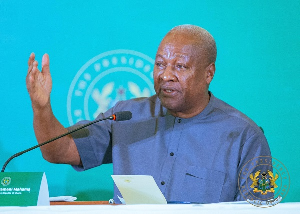The 2015 States of the World Population Report has recommended that the health needs of women and adolescents be given priority in times of natural disasters, conflicts and in humanitarian settings.
The report said protecting the health and rights of women and adolescents is not only critical to weathering the worsening storm of wars and natural disasters, but can also help accelerate recovering from crisis.
It called for a better, stronger and more resilient shelter to enable women and adolescents “weather the storms that endanger their health, rights and futures”
The report launched worldwide on Thursday shows that of the 100 million people in need of humanitarian assistance around the world today, about 26 million are women and adolescent girls in their childbearing years.
The State of the World Population 2015 “Shelter from the Storm” which was launched by Ms Christine Evans Klock, UN Resident Coordinator in Accra, said the health needs of women and adolescents are often neglected in humanitarian response to natural disasters and conflicts around the world”.
On annual basis, the United Nations Population Fund (UNFPA) compiles a report on the state of the world’s population with critical areas identified to guide advocacy, policy and development planning worldwide.
This year’s report, themed: “Shelter from the Storm: A transformative Agenda for Women and girls in a Crisis-Prone World”, is focusing on humanitarian situations, while calling for action to meet the peculiar needs of women and girls and ensure their rights.
According to the report, when crisis strikes, women and girls are disproportionately disadvantaged and less prepared or empowered to survive, adding that sexual and reproductive health services critical to the health and survival of women and adolescent are scarcest at the time they are needed most.
It revealed that three fifth of maternal deaths today occur in countries that are considered fragile because of conflict or disaster. Pregnancy and childbirth kills 507 women every day in these settings.
“The health and rights of women and adolescents should not be treated like an afterthought in humanitarian response. For the pregnant woman who is about to deliver, or the adolescent girl who survived sexual violence, life-saving services are as vital as water, food and shelter”, says Dr Babatunde Osotimehin, UNFPA Executive Director.
He called for investment in a more stable world, capable of withstanding the storms ahead” as the world do more in helping the most vulnerable, especially adolescent girls.
The report says because there are so many conflicts and disasters in the world today, UNFPA is delivering an increasing share if its services in crisis, having responded to crisis in 38 countries in 2015.
It said the current UNFPA shelter cannot protect all those who need it, adding that in 2014, the United Nations required 19.5 billion dollars to respond to humanitarian situations around the world but faced a record 7.5 billion dollars shortfall, jeopardizing the health and lives of millions of people.
The report says since the demand for humanitarian assistance outpaces supply, a new approach was needed with a new emphasis on preventing, preparedness and building resilience of nations, communities, institutions and individuals.
“A pathway to resilience is equitable, inclusive development that protects rights, including reproductive rights”, the report said.
Mr Babatunde Ahonsi, UNFPA Representative, said measures should be taken to prevent or mitigate the effects of conflicts and disaster and to accelerate recovery while efforts are made to identify and develop alternative funding sources for humanitarian situations.
Health News of Monday, 7 December 2015
Source: GNA












